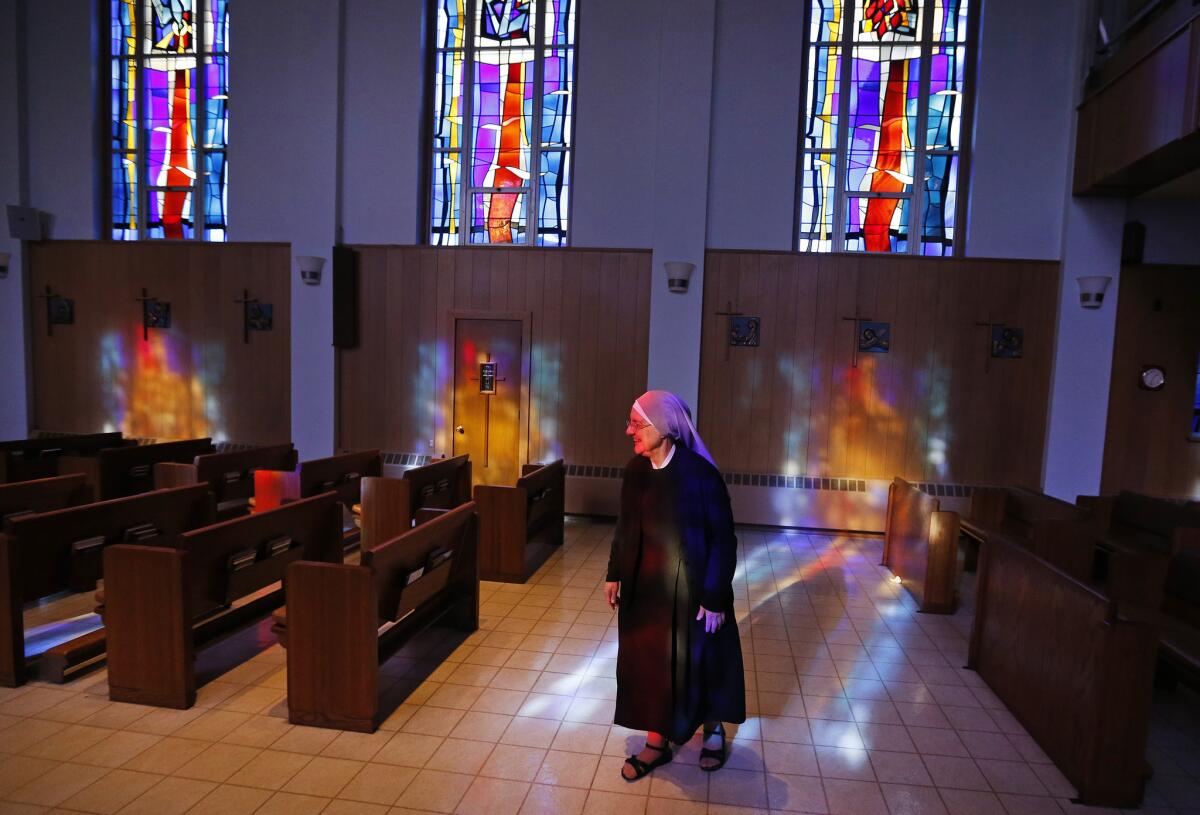Why the Little Sisters of the Poor should embrace birth control pills

Leave it to the brilliant Malcolm Potts to explain why the Little Sisters of the Poor, the Colorado nuns who recently won an interim U.S. Supreme Court victory, are hurting themselves, not just their female employees, by claiming that they should be exempt from offering contraceptive coverage with their healthcare benefits.
Potts, a UC Berkeley public health professor who is an obstetrician and embryologist, is a celebrity in international reproductive health circles. For decades he has pioneered advances in women’s reproductive health, particularly in the developing world.
I first met him in 2010 when I was invited to attend a debate on abortion between Potts and Raymond Dennehy, a Roman Catholic professor of philosophy and bioethics at the University of San Francisco and staunch abortion foe. For more than 10 years, the men, both in their late 70s, have faced off each semester before an auditorium full of undergraduates. Their debates, which can become heated, are a model of decorum and respect.
In an op-ed piece in Thursday’s Los Angeles Times, Potts explained two important, overlooked aspects about the nuns’ objections to providing contraception coverage.
First, he notes, the Vatican came very close to approving the new birth control pill in the late 1960s. A commission on birth control, created by Pope John XXIII, concluded in 1966 that oral contraceptives were not “intrinsically evil.”
What, you say?
Yes, as it turns out, the church was very nearly persuaded by the argument that birth control pills “by suppressing ovulation, were actually more in line with Catholic theology than the rhythm method, since the rhythm method meant that eggs went deliberately unfertilized, whereas with oral contraception there were no eggs,” Potts writes.
Alas, the next pope, Paul VI, did not accept that argument, and ruled in his 1968 encyclical Humanae Vitae that any action aimed at preventing procreation must be prohibited.
Second, Potts writes, many nuns would benefit physically from taking birth control pills -- not for contraception, obviously, but for their health.
“Nuns have a substantially higher risk of reproductive cancers than women who have children, in part because of their celibacy, which means a lifetime of uninterrupted menstrual cycles,” writes Potts, who explains that hundreds of such cycles wreaks “hormone turmoil” on a woman, particularly one whose menses have never been interrupted by pregnancy and breast feeding.
“Even a few years of oral contraceptives have been shown to lead to a substantial reduction in ovarian and uterine cancer later in life,” he writes.
Last Friday, the Supreme Court ruled that while the nuns’ case is being reviewed by a federal court, the sisters, who run nursing homes, do not have to comply with the law.
It’s a victory for the nuns, sure, but a loss for their female employees ... and for science.
Twitter: @robinabcarian
More to Read
Sign up for Essential California
The most important California stories and recommendations in your inbox every morning.
You may occasionally receive promotional content from the Los Angeles Times.











